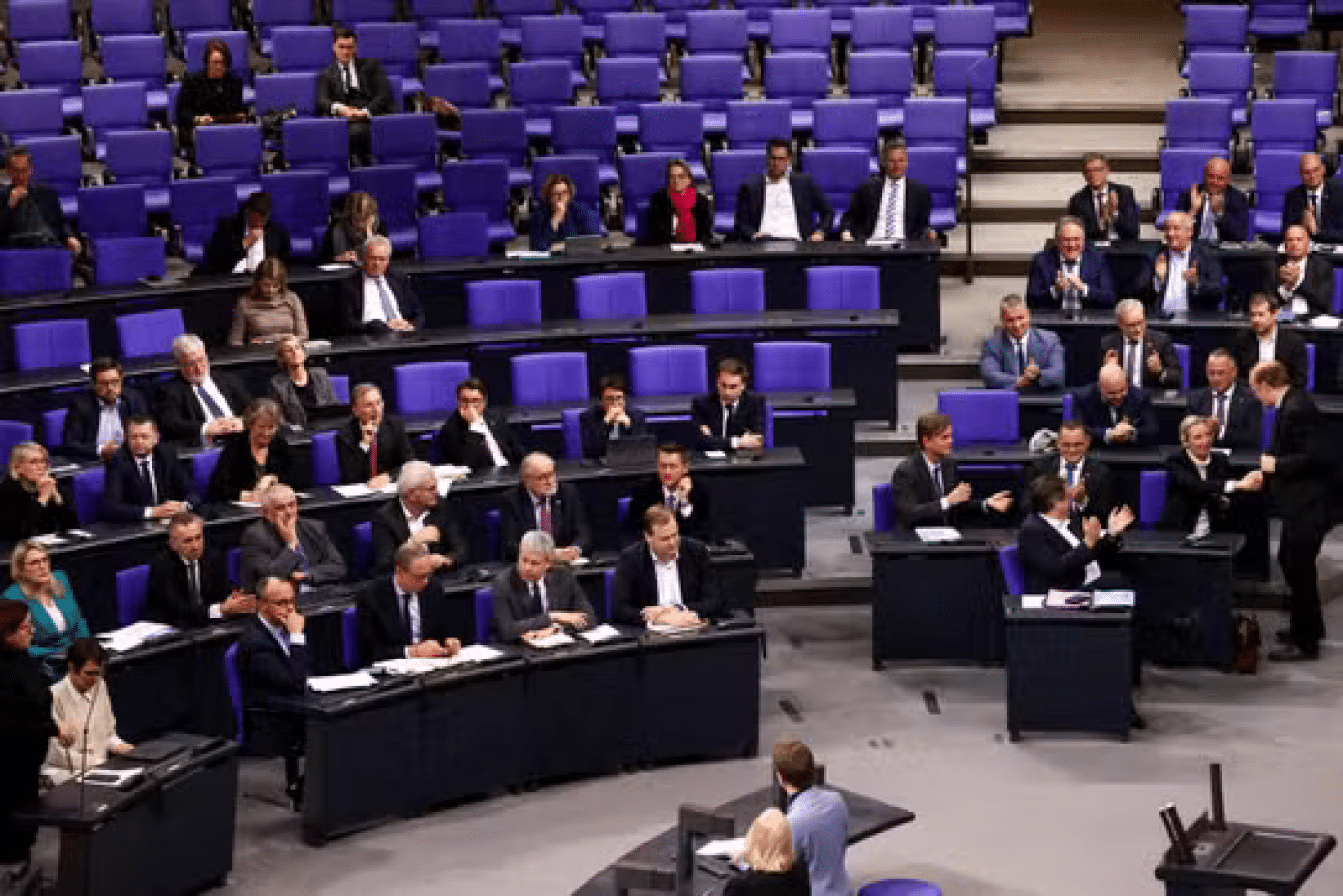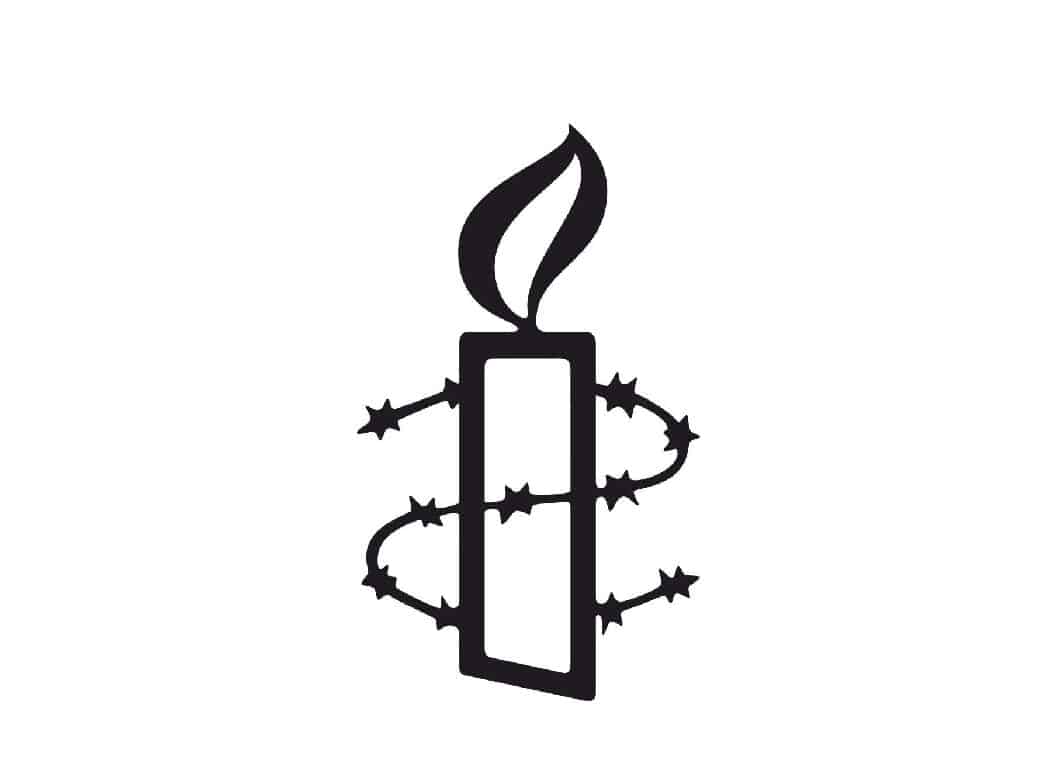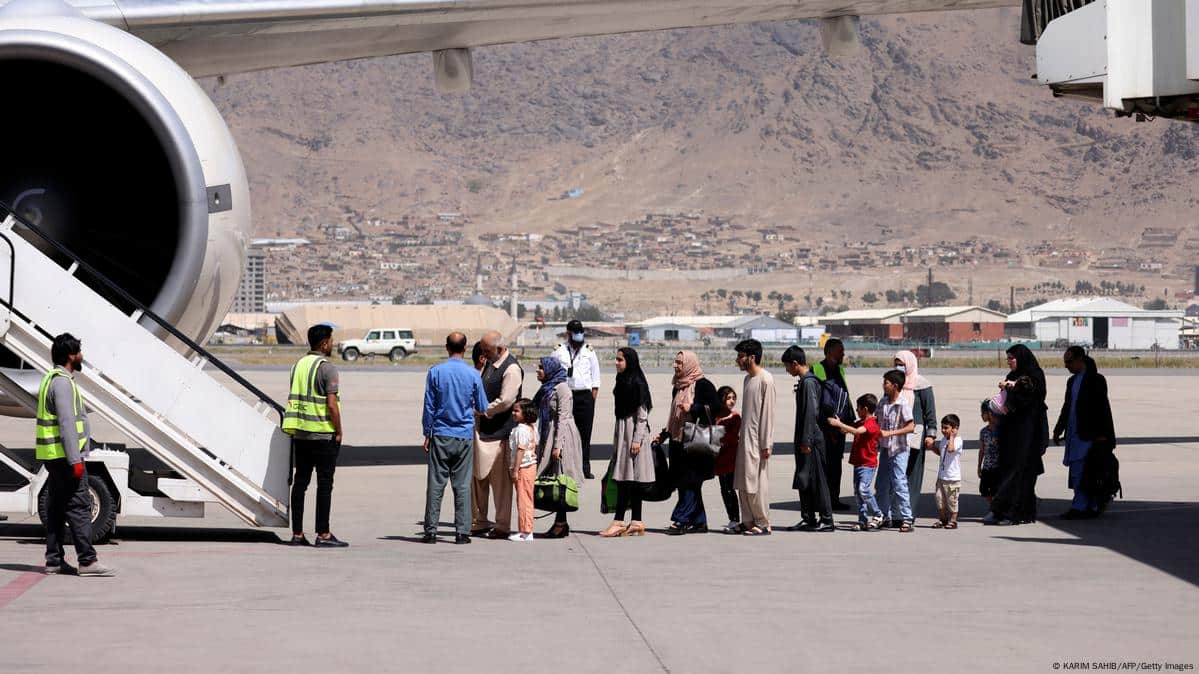
German Parliament Approves Migration Resolution with Far-Right Support, Breaking Political Taboo
پارلمان آلمان با حمایت حزب راست افراطی AfD قطعنامه مهاجرتی را تصویب کرد و یک تابو سیاسی را شکست
اپوزیسیون محافظهکار آلمان به رهبری فریدریش مرتس توانست با حمایت حزب راست افراطی آلترناتیو برای آلمان (AfD) موافقت پارلمان را برای یک قطعنامه غیرالزامآور در جهت محدودیتهای شدیدتر مهاجرتی به دست آورد. این اقدام، شکستن یک تابوی سیاسی محسوب میشود، زیرا سنت دیرینهی عدم همکاری احزاب جریان اصلی با راست افراطی را نقض کرد. این تصمیم در آستانه انتخابات ملی آلمان در ۲۳ فبروری گرفته شد، انتخاباتی که در آن انتظار میرود AfD به دومین حزب بزرگ پس از محافظهکاران تبدیل شود.
مرتس دو پیشنهاد را به پارلمان ارائه کرد: یکی در مورد اعمال تدابیر امنیتی سختگیرانهتر و دیگری برای بستن مرزهای زمینی آلمان به روی مهاجرت غیرقانونی. پیشنهاد بستن مرزها با اختلافی ناچیز، تنها سه رأی، تصویب شد، در حالی که پیشنهاد امنیتی رد شد. این تصمیم باعث شد که بحثهای داغ و پرتنشی در بوندستاگ شکل بگیرد، زیرا اولاف شولتس، صدراعظم آلمان، و احزاب ائتلافی او از جمله حزب سوسیال دموکرات (SPD) و حزب سبزها با این پیشنهادها مخالفت کردند.
شولتس به شدت این همکاری با AfD را محکوم کرد و هشدار داد که این اقدام توافق دموکراتیک دیرینهی پس از جنگ جهانی دوم را که بر عدم همکاری با راست افراطی تأکید دارد، زیر پا میگذارد. او حتی نسبت به احتمال همکاری آینده بین CDU/CSU و AfD پس از انتخابات هشدار داد، هرچند مرتس چنین سناریویی را رد کرده است. کلیساهای کاتولیک و پروتستان آلمان، همراه با شورای مرکزی مسلمانان، این تصمیم را مورد انتقاد قرار دادند و هشدار دادند که چنین همکاریهایی انسجام اجتماعی و دموکراسی کشور را به خطر میاندازد.
مرتس از اقدام خود دفاع کرد و گفت که یک سیاست درست نباید صرفاً به دلیل حمایت افراد یا گروههای نامطلوب کنار گذاشته شود. او همچنین حزب سوسیال دموکرات و سبزها را به ناکارآمدی در مدیریت بحران مهاجرت متهم کرد، اگرچه دولت کنونی آلمان در سالهای اخیر قوانین سختگیرانهتری برای پناهندگی تصویب کرده و کنترلهای مرزی بیشتری را اعمال کرده است.
این اقدام ممکن است تشکیل ائتلاف پس از انتخابات را دشوارتر کند، زیرا برخی از رهبران SPD و سبزها مرتس را برای رهبری کشور نامناسب دانستند. تحلیلگران سیاسی هشدار دادهاند که تضعیف دیوار آتش در برابر AfD ممکن است به مشروعیت بخشیدن به این حزب راست افراطی منجر شود و همزمان رأیدهندگان محافظهکار میانهرو را از CDU/CSU دور کند. نظرسنجی جدید مؤسسه فورسا نشان داد که حمایت از CDU/CSU پس از وعده مرتس برای اعمال سیاستهای سختگیرانهتر در مورد مهاجرت، سه درصد کاهش یافته و به ۲۸٪ رسیده است، در حالی که SPD و AfD هر کدام دو درصد افزایش داشتهاند و به ترتیب به ۱۷٪ و ۲۱٪ رسیدهاند.
در همین حال، آلیس وایدل، رهبر AfD، به انتقادهای احزاب جریان اصلی واکنش نشان داد و ادعای وجود دیوار آتش را یک توافق ضد دموکراتیک خواند که هدف آن کنار گذاشتن میلیونها رأیدهنده است. با توجه به این تحولات، پیشبینی میشود که این رأیگیری تأثیرات مهمی بر فضای سیاسی آلمان در آستانه انتخابات داشته باشد.
German Parliament Approves Migration Resolution with Far-Right Support, Breaking Political Taboo
Germany’s opposition conservatives, led by Friedrich Merz, secured parliamentary approval for a non-binding proposal to significantly restrict migration, with the support of the far-right Alternative for Germany (AfD). This marked a historic breach of the longstanding political “firewall” against cooperation with extremist parties. The decision comes ahead of Germany’s national election on February 23, where AfD is projected to become the second-largest party after the conservatives.
Merz introduced two motions: one advocating for stricter security measures and another calling for the closure of Germany’s land borders to irregular migration. The border closure proposal narrowly passed with a three-vote majority, while the security measure was rejected. The move sparked hours of heated debate in the Bundestag, with Chancellor Olaf Scholz and his Social Democrats (SPD), along with the Greens, opposing the measures.
Scholz condemned the cooperation with AfD, arguing it shattered a post-war democratic consensus that mainstream parties must not work with the extreme right. He warned that Merz’s move could pave the way for a future coalition between the CDU/CSU and AfD, despite the conservatives officially ruling out such an alliance. Germany’s Catholic and Protestant churches, as well as the Central Council of Muslims, also criticized the decision, warning it endangered social cohesion and democracy.
Merz defended his actions, arguing that good policies should not be dismissed simply because of who supports them. He blamed SPD and the Greens for failing to address migration issues effectively, despite the government already implementing stricter asylum policies and increased border controls.
The move may complicate coalition-building after the election, as SPD and Green leaders questioned Merz’s suitability to govern. Political analysts warned that weakening the firewall against AfD risks legitimizing the far-right while alienating centrist conservative voters. Following Merz’s migration stance, CDU/CSU’s support dropped by three points to 28% in a Forsa poll, while SPD and AfD each gained two points, reaching 17% and 21%, respectively.
AfD leader Alice Weidel dismissed mainstream opposition to her party, calling the firewall an “anti-democratic cartel” designed to exclude millions of voters. The fallout from this vote is expected to have significant implications for Germany’s political landscape in the run-up to the election.
Source
- Tags
- Europe



